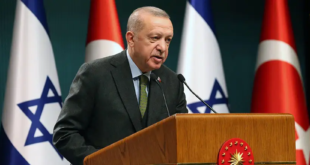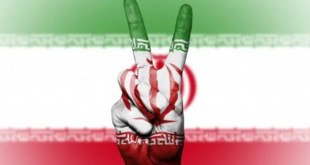BAGHDAD (AP) — A huge car bomb exploded Saturday at a bustling outdoor market in a Shiite district of Baghdad, killing at least 66 people and injuring about 100 in the deadliest attack since the new national unity government took office six weeks ago.
Shortly before the midmorning blast, gunmen seized a female Sunni legislator at a checkpoint in a Shiite area of the capital. Both attacks represented a major challenge to Prime Minister Nuri Maliki’s vow to curb sectarian violence that threatens to plunge Iraq into civil war.
The market bombing appeared timed to cause a maximum number of casualties among civilians doing their weekend shopping. It blew some victims onto the roofs of nearby two-storey buildings and sent a plume of gray smoke billowing into the sky above Sadr City, stronghold of radical cleric Moqtada Sadr.
Rescuers sprinted through streets littered with debris of shattered market stalls. Emergency crews bundled the wounded into ambulances and private cars and rushed them to hospitals. Late Saturday, Iraqi state television reported that 66 people died and about 100 were wounded.
No group claimed responsibility for the bombing, the deadliest since an April 7 suicide attack that killed 87 people at a Shiite mosque in Baghdad. But bystanders blamed Sunni extremists, such as Al Qaeda in Iraq, whose leader Abu Mussab Zarqawi was killed in a US air strike June 7.
“Give us the green light to attack and finish them for once and for all,†a group of young men shouted, referring to Sunni militants.
A few kilometres from the blast, gunmen seized lawmaker Tayseer Mashhadani and seven of her bodyguards at a checkpoint in a Shiite area of eastern Baghdad.
Officials said she was travelling to Baghdad from her home in nearly Diyala province, a hotbed of sectarian violence, to attend a parliament session Sunday. One of her bodyguards escaped, officials said.
Mashhadani’s colleagues in the Iraqi Islamic Party, the largest Sunni political organisation, blamed the ministers of interior and defence for failing to restore security in the capital. A party statement alleged that some of the kidnappers carried government-issued weapons.
A top party official, Ayad Sammaraie, said such kidnappings were aimed at undermining steps towards national reconciliation by fuelling animosity among Iraqis so “they cannot sit together and talk.†The US embassy condemned the kidnapping as an attempt to stoke sectarian tension and demanded her immediate release.
“We note that Ms Mashhadani is an elected representative of the people of Iraq and that this act is repugnant to all who believe in the right of Iraqis to participate in their country’s democracy,†the embassy said.
The latest violence occurred as Maliki, a Shiite, left for a tour of Persian Gulf countries to brief leaders on his plans for national reconciliation, including amnesty for Sunni Arab insurgents and efforts to heal the Shiite-Sunni rift.
Maliki’s first stop was Saudi Arabia, whose government fears that sectarian violence in Iraq could spill over into neighbouring countries that are dominated by Sunnis but with large Shiite communities. He is also to visit Kuwait and the United Arab Emirates.
As part of the reconciliation plan, Iraqi and US authorities Saturday freed 495 prisoners from US jails across Iraq, completing a mass release announced by Maliki last month. Most of the prisoners were believed to be Sunnis.
“We are prepared in consultation with the Iraqi leaders to make future prisoner releases and to take other concrete steps to facilitate reconciliation,†US Ambassador Zalmay Khalilzad said in a statement. “As the government moves forward with these steps, it can count on support from the US government.â€
US and Iraqi officials had hoped that installation of a new unity government of Shiites, Sunnis and Kurds would stem the violence and encourage armed groups to join the political process. Those hopes were buoyed by the death of Zarqawi in an air strike June 7.
However, more than 700 Iraqi civilians and security forces have died violently since Zarqawi’s death, according to Associated Press figures.
Also Saturday, a US soldier assigned to the 43rd Military Police Brigade was killed in a non-combat related accident, the military said, without providing further details.
Elsewhere, police found a grave in Baghdad containing bodies of at least six men who appeared to have been shot more than a month ago, Lt. Thaer Mahmoud said. The identities of the men were unknown, but their bodies were discovered in a Baghdad area notorious for sectarian killings.
Also Saturday, new details emerged into allegations that US soldiers raped an Iraqi woman south of Baghdad in March, then killed her and three family members.
A US official familiar with the investigation told the AP that the soldiers allegedly plotted the attack for about a week. The official, who spoke on condition of anonymity because the case is under investigation, said the soldiers doused the woman’s body with flammable liquid and burned it to cover up the assault.
US officials said they knew of the deaths but thought the victims died due to sectarian violence. But police Capt. Ihsan Abdul-Rahman said Iraqi officials received a report March 13 alleging that US soldiers had killed the family.
 Eurasia Press & News
Eurasia Press & News



